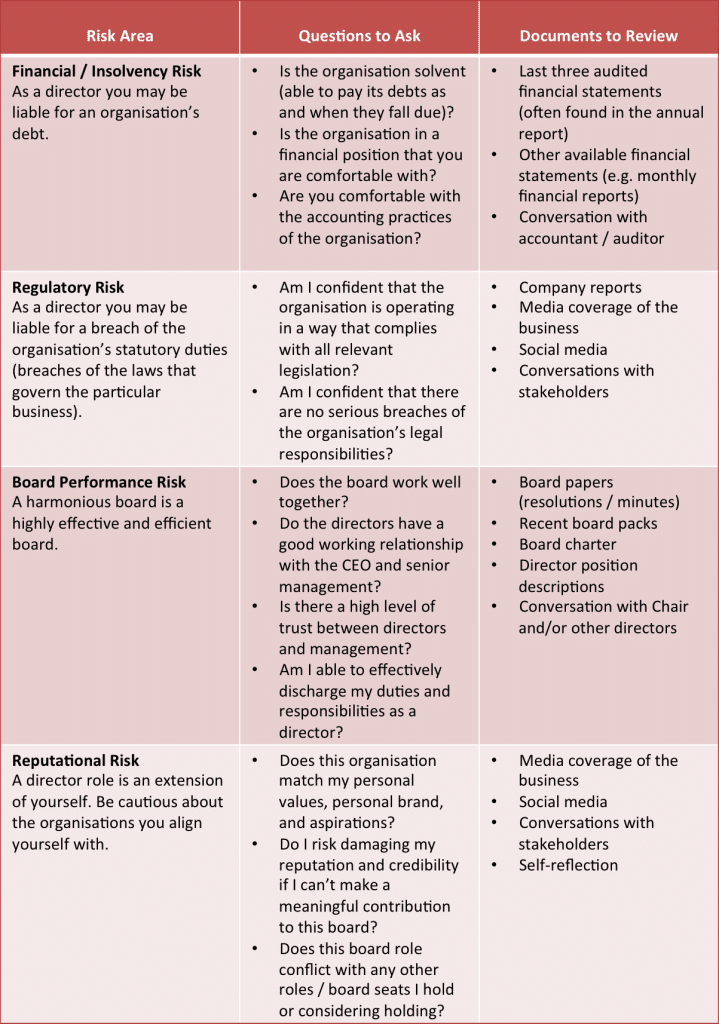Director Due Diligence

You may have seen the term ‘due diligence’ peppered around various posts on our blog. And you’re probably wondering what on earth it means.
Due diligence is a process that you undertake when you’re considering joining a board. This process should bring you to understand the potential risks to you from joining the board, recognise the personal contribution you can make to the organisation, and acknowledge your professional development requirements.
We’ll now step through these three areas to give you more of an understanding of what you need to consider before joining a board.
Understanding the potential risks to you from joining the board
The table below will help you to consider and assess the main areas of risk to you and the organisation.
Recognising the personal contribution you can make to the organisation
At this stage of your directorship journey you should have a strong understanding of the level and type of personal contribution you can make to a board (i.e. time and hard skills). It’s also worth considering skills that you have that extend beyond these hard skills and that focus more on the soft skills needed to succeed as a director. These include questioning and challenging skills, the ability to remain independent and objective, the skill to gain director and board support on decisions, and the capability to exercise sound judgement. Seek the feedback of a trusted advisor who has seen you operate in a work environment to give you feedback on your areas of strength and weakness.
Acknowledging your professional development requirements
Whilst you will gain more confidence and skills during your tenure, as a director you should try and establish a base-line understanding of finance and financial reports, business strategy, and corporate governance.
But your director learning and development requirements don’t end there. The level and pace of change across all business and legislation areas means that adopting a ‘life-long learner’ mindset is a mandatory requirement for directors.
This recent post here outlines why it’s so important for directors to undergo continual professional education. This post here shares how you can determine your specific development needs and the types of training and development available for company directors.
I hope this post has shed some light on the due diligence process. Keep these three areas in mind throughout the process of joining a board – from interest, to first enquiry, to interview, and prior to accepting the appointment. That way you will be well-informed, comfortable, and confident when you get your feet under the board table.
Subscribe to Receive Access to Articles, Resources, and Tools to Support Your Board Goals.
3 Comments
Comments are closed.


Great article again Lisa. Thanks. The topic is loosely covered be default in your article, but of increasingly critical importance is the cyber security strategy of the board and the company. This is why I am passionate about reaching CEOs and boards about. It is of equal importance to fiscal and regulatory requirements. It has the potential to bring even the largest of organisations to it knees very quickly if not properly addressed by boards and senior management.
Great considerations to add to your due diligence activities, Ross. Thank you for sharing.